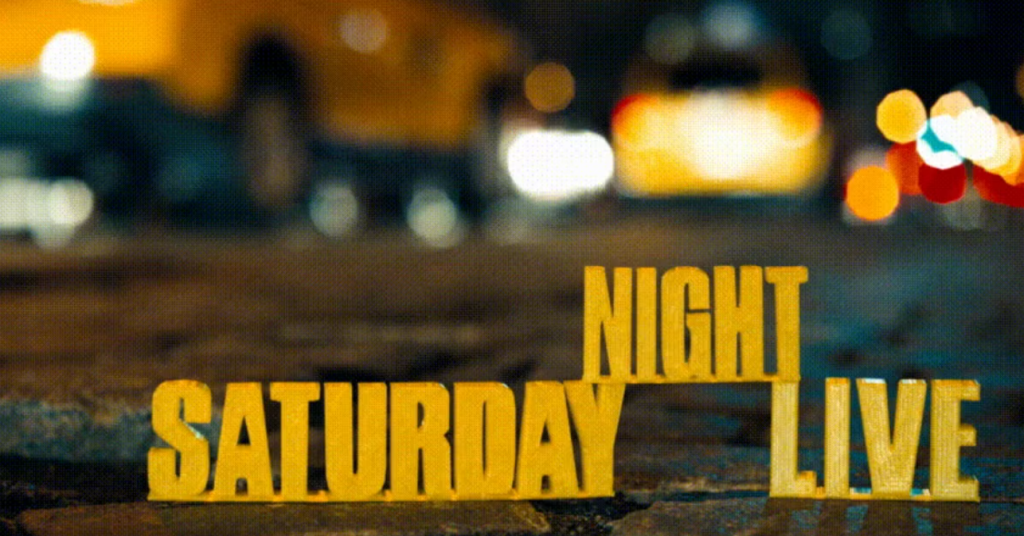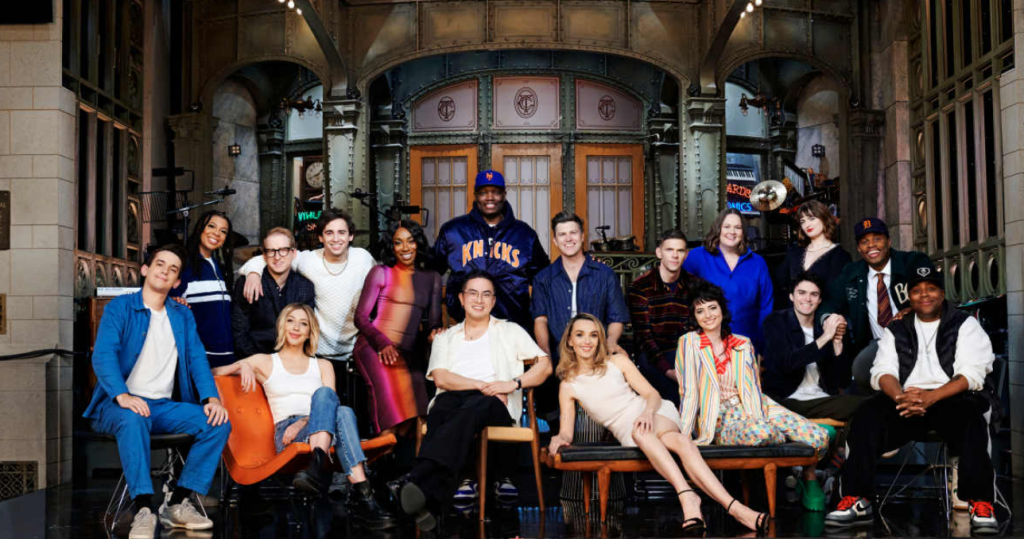Before we dive into Saturday Night Live (2024), let’s do a quick mental exercise: can you picture one of the most iconic sketch shows in American TV history almost falling apart the night before its debut? A chaotic rehearsal, a shaky cast, missing props, and a young producer losing sleep backstage. If you’ve ever pulled an all-nighter for a college presentation or botched a group project five minutes before the deadline, you already get the vibe.
Directed by Jason Reitman, SNL is not your typical nostalgic tribute film. It’s more like a love letter to everyone who’s ever tried to make something funny while quietly panicking inside. It’s not about the glory of success—it’s about the long, messy, panic-filled road that sometimes leads to it.
At the center of it all is a young Lorne Michaels, played with nervy precision by Gabriel LaBelle. He’s just been handed a wild opportunity by NBC: create a live weekly sketch comedy show from scratch. No pressure, right? The reality is closer to a creative breakdown in real time. Scripts are unfinished, performers are untested, and the network is breathing down his neck. Every rehearsal feels like a slow-motion car crash. And yet, Lorne has to hold the ship together like a sleep-deprived conductor trying to keep a jazz band from collapsing mid-solo.
What makes this film shine is how it portrays creative anxiety with raw honesty—there’s zero sugarcoating. In one scene, Lorne hides in a dark hallway, desperately making a phone call to fill a last-minute actor drop-out. He’s not just trying to convince someone else to show up—he’s convincing himself this thing might still work. That moment of self-doubt is painfully universal. It doesn’t matter if you’re a junior copywriter in Chicago or a Brooklyn barista scribbling stand-up jokes between shifts. We’ve all been there.
The supporting cast is stacked and soulful: Rachel Sennott, Dylan O’Brien, and Cory Michael Smith as Chevy Chase all bring these real-life figures down to earth. They’re not legends yet—they’re insecure, volatile, and one bad line away from imploding. You can’t help but think of people like Anna, a young writer who once ditched law school to chase comedy in LA. She crashed on couches, lived off instant noodles, and spiraled after every bad open mic. But she didn’t stop. Eventually, she made it into the SNL writers’ room—though no one really knows her name.

This film isn’t just about comedy. It’s about why anyone would risk everything for it. Even as things spiral out of control—missing cue cards, emotional meltdowns, lighting issues—the cast and crew keep pushing because they believe in the audience’s laugh. Not because it’s safe. Not because it’s glamorous. But because it’s real. In today’s world of algorithm-curated entertainment, there’s something refreshing about watching real people stumble their way into something meaningful.
And yes, the movie is funny. Especially if you’re into behind-the-scenes chaos from the analog days. Rotary phones, clunky typewriters, and cigarette breaks between sketches all lend it a gritty 1970s rhythm. One highlight is Nicholas Braun as Jim Henson, scrambling to save a segment with a last-minute puppet bit—equal parts absurd and oddly moving.
If you’re an SNL fan, this is catnip. But even if you’ve never seen a single sketch, this movie hits on something deeper. It’s not about television history—it’s about that moment when everything seems to be falling apart, and somehow, you still find the strength to go on.
The film moves with a pace that mirrors improv itself—sloppy at first, then electric. And maybe that’s the point. As the 78% critics score and 84% audience approval suggest, Saturday Night Live (2024) isn’t just a tribute to a show. It’s a tribute to the people who make the leap when there’s no safety net.

So next time your laptop crashes five minutes before a Zoom pitch, remember: SNL almost flopped before it even aired. And yet, somehow, it became a cultural legend. Sometimes, what feels like disaster is just the first draft of your breakthrough.
